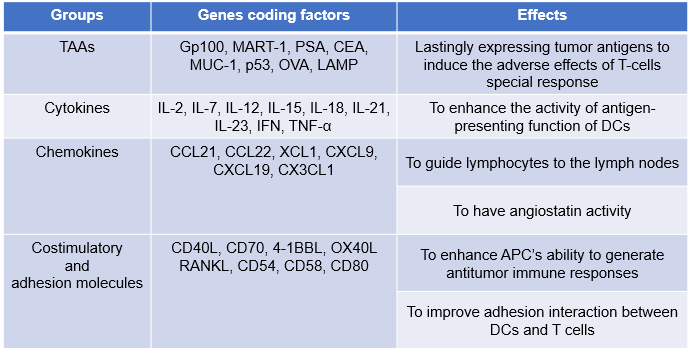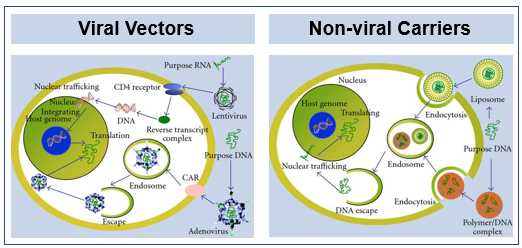Development of Dendritic Cell as Gene Delivery System
Different types of gene delivery systems can be applied in gene therapy to restore a specific gene function or turn off special genes. Currently, combining gene therapy with immunotherapy has been regarded as a promising treatment for many recurrent diseases and used for in the adjuvant setting. Dendritic cell (DC)-based strategies are becoming more and more popular and promising. Creative Biolabs possesses sophisticated dendritic cells production platform to generate potent DCs applied to treat cancer, transplantation and infectious disease, as well as utilize dendritic cell models for basic research.
Introduction of Dendritic cells
Dendritic cells (DCs) are the most powerful antigen-presenting cells (APCs) used for the induction of antigen-specific T cell response. DCs provide the crucial link between the innate and the adaptive immune system that play a regulatory role in numerous immune processes. The ability of DCs dues to the expression of costimulatory molecules on their surface, as well as the secretion of cytokines, chemokines and antigen loading. DCs can induce tolerance or immunity and can be genetically modified to express antigen of interest or modulate the function of the cells.
 Fig.1 Genes used for modification of Dendritic cells
Fig.1 Genes used for modification of Dendritic cells
Genetic modification of Dendritic cells
Genetic modification of DCs function in ex vivo methodologies is an attractive approach to treat diseases. The genetic modification is based on allowing selective DC propagation and antigen loading in vitro to design DC-mediated interventions that will directly trigger immune activation in vivo. Several vectors can be used to deliver transgenes for genetic modification of DCs, and here, we offer the most comprehensive delivery system containing viral vectors and non-viral vectors for you to choose.
- DCs transferred by viral vectors
The viruses employed as gene vectors with the characteristics of outstanding efficiency and large payload capacity include adenoviruses (Ad), adeno-associated viruses (AAV), lentivirus and other viruses. We provide several improvements in viral strategies such as gene and capsid modification.
- DCs transferred by non-viral carriers
We are also optimizing to develop non-viral strategies, including liposomes, polyplexes, cationized gelatin, PLGA, chitosan, virus-like particles and LPD with mannosylated and histidylated, to circumvent some limitation of viral vectors, improve the delivery efficiency as well as protein expression level while reduce immune response and costs. We have devoted to developing advanced delivery systems, such as the reverse and 3D transfection system, to enhance the level and duration of gene expression.
 Fig.1 The mechanism of transfection using viral vectors and non-viral carriers.1
Fig.1 The mechanism of transfection using viral vectors and non-viral carriers.1
Dendritic cells can be used in vaccine development that is made from each patient's own dendritic cells with low adverse effects. We offer optimal formulation of DCs and administration methods mainly include intradermal, intravenous, intratumoral and intranodal delivery. DCs have already been applied to the treatment of malignant melanoma, prostate cancer, hepatoma cancer, metastatic lung cancer, renal cell carcinoma, malignant lymphoma and urologic cancer cells.
Creative Biolabs provides various high yields of DCs with the desired characteristics and functionality, while maintains potency of dendritic cells for T cell stimulation. We also offer the one-stop services involving design and manufacturing which in compliance with GMP regulations to facilitate transfer from research to clinic. If you want to know more about the application of DCs, please contact us.
Reference
- Chen, Y. Z.; et al. (2010). Gene carriers and transfection systems used in the recombination of dendritic cells for effective cancer immunotherapy. Clinical and Developmental Immunology. Distributed under Open Access license CC BY 3.0, without modification.
